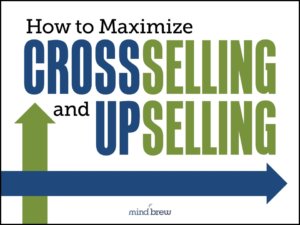Legendary Detroit baseball commentator Ernie Harwell once described a rookie player as having “experience no bigger than the lump in his throat as he begins fulfillment of his dream.”
Starting out in your Sales Ops career might not be quite as exciting—or intimidating—as your first at-bat in the major leagues, but Sales Ops rookies do have to deal with pressure to perform despite having very little experience.
And that combination of pressure and inexperience makes them very susceptible to rookie mistakes.
We’ve noticed that newbie Sales Ops practitioners tend to make the same sorts of blunders: they frequently ignore critical sales operations concepts. They take their eye off the ball, so to speak.
These folks with less experience tend to forget about three concepts in particular:
1. Salespeople Don’t Care About Data Analysis — Most of us in Sales Ops care about data and have a strong aptitude for data analysis–we love getting a big pile of data and seeing what we can find. But that trait is incredibly rare for salespeople. You’ll really miss the mark if you’re pushing data to salespeople expecting them to interpret and understand it. Instead, focus on providing salespeople with the right answers. Embracing this concept and working it into everything you do in Sales Ops will help ensure success. The webinar Developing Effective Sales Dashboards explores this concept in more depth and provides some helpful strategies.
2. Retention & Expansion are Sweet Spots — Sales Ops is uniquely positioned to reveal opportunities for customer retention and account expansion. Better yet, these are often greenfield opportunities because they’re not areas that get much systematic attention. For most companies, these areas are left to salespeople to manage themselves. But the data and analysis that Sales Ops has access to makes it a perfect place to reveal wallet-share growth opportunities and detect customer defection at scale. Our webinars How to Maximize Cross-Selling and Up-Selling and How to Retain Your Key Customers examines best practices in both of these areas.
3. Focus on Sales Managers — When you’re trying to facilitate change within a large sales force, it’s easy to believe that you need to get every singe salesperson on-board. But focusing on Sales Managers gives you much more leverage. Getting those managers on your side will allow them to disseminate the changes to their direct reports (and make life easier for you). Conversely, if those sales managers aren’t on-board with your initiatives, they’ll act as a challenging firewall that can hold back what you’re trying to accomplish. The webinar The Sales Ops Guide to Enabling Sales Managers provides some great strategies that others have used to influence sales managers and drive broad performance improvements.
If Sales Ops rookies can master these three concepts, they are well on their way to a successful career.
But of course, this is only a start. Sales Ops all-stars have to master a wide range of skills, some of which we explain in the webinar Crucial Sales Ops Concepts. It looks at 15 fundamental ideas that everyone in Sales Ops should understand thoroughly. It’s a great place for new practitioners to start or for veterans to brush up on their knowledge. And while we can’t guarantee that you won’t ever make any errors after watching, it can give your skills and confidence a boost that can help eliminate some of those all-too-common rookie mistakes.















